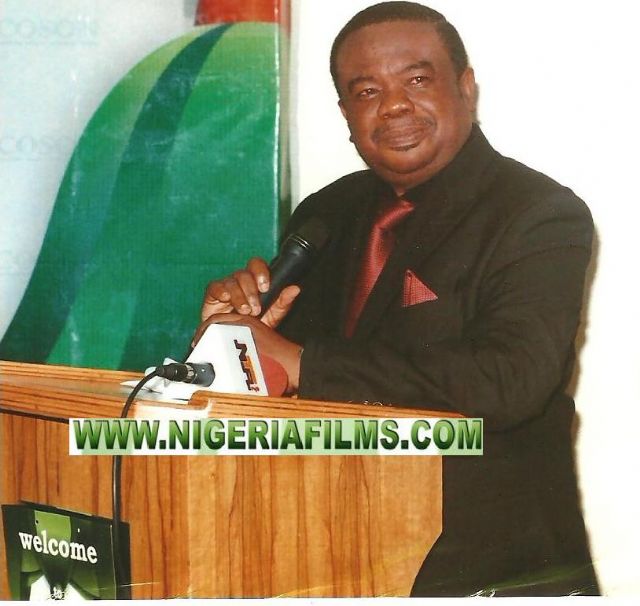
Call him Sadisu or Teacher Yekondunu, as he is popularly known by the Niger State populace, most especially his fans in Nupeland, he is one of the pioneers of Nupe films and an entertainer, director, actor, producer and above all, a royal title holder. ‘Sarkin Wasa Nupe’, (the king of Nupe entertainers) was conferred on him by the Nupe Traditional Council. He ventured into the world of cinema in early 1990 after completing his secondary school education. He said at that point, he was confused over what he wanted to be because according to him, his mother wanted him to be a career banker, while his father wanted him to be a scientist. “It was in the middle of this that I made up my mind to become who I truly wanted to be.
So I began by honing my talent in creative writing,” said Sadisu who played the character, Teacher Yekondunu in one of his movies, which are making waves in Nupeland. Describing the character, the multi-talented filmmaker and creative writer said Teacher Yekondunu is an eponymous character he portrayed in one of his early films. Saying that the movie introduces the world to some aspects of Nupe culture like the marriage institution and payment of bride price, which the character of Teacher Yekondunu struggled to wipe out . Inside Kannywood gathered that apart from being entertained, Nupe viewers are satisfied that movies are being produced in their mother tongue as respite from the influx of foreign films. Sadisu’s Nupe films attracted national attention at the recently concluded African Language Films Festival held in Akure, Ondo State.
A lot of filmmakers who see the need for annual events to showcase indigenous films, are of the opinion that such events will go a long way in helping the budding local language movies go places as well as unveil the rich-cultural heritage of our communities, within and outside the country. Mrs. Biodun Ibitola, one of the organisers said, “Africa has a lot of culture to offer other civilisations and the best way to project that potential is in the diverse indigenous language of African nationalities. These apt remarks spun my decision to grace the event.”
Narrating the adventurous trip to Akure Ondo State, venue of the event, Mrs. Ibitola said, “The nearly nine-hour drive from the north-central part of Nigeria to the South-West was expectedly a dangerous progression. On leaving Minna to Akure, the first hazard was the deadly cross-over out of Niger from Mokwa to Jebba, which is a popular death-trap known by all Nigerian motorists that ply the road, and then another hassle is the trip down to the Kwara State capital, Ilorin. I relished the scenery of the countryside and roadside villages as we drove past, satisfied that my troubles were over, until a loud noise woke me; we were, surrounded by some evil-looking, armed young men whom I quickly realised were armed robbers. They communicated in Yoruba and I panicked as they started their operation by dispossessing our driver. I actually did not know which part of the country we were, having been living in my dream before this forced wake. That’s how we made our way to the historic event.”
In his assertions also, Teacher Yekondunu said, “The first day was the flagging off of the event at the government house, which was just a stone’s throw from the hotel. We were seated at the banquet hall of the government house and awaited the grandeur of the hall, the arrival of the state governor, who showed up about an hour later. He was accompanied by his wife and members of the Ondo State executive council. It was an evening to remember, steeped in the merriment of the live band strategically positioned in the hall. Guests present were delegations from Nollywood Association of Theater Art Practitioners (NANTAP), Actors Guild of Nigeria (AGN), Association of Movie Producers (AMP), Script Writers Guild of Nigeria (SWGN), The Motion Pictures Practitioners Association of Nigeria (MOPPAN) and many other professional bodies, institutes, production outfits and various divides of filmmaking language in the country.”
Describing his satisfaction with indigenous filmmaking in Nigeria, Teacher Yekondunu said, although a film is supposed not to have any language, it was really great to have movies produced in indigenous language of Africa. Nupe films have made huge in-roads and triumphs into another world of cinema that constitutes a part of Nollywood. I am proud to be an indigenous filmmaker because I believe with this people will come to appreciate our efforts and also that will woe investors and tourists to come and explore our part of the world. I am really proud to be one of the pioneers of ‘NUPEWOOD.’
What were the challenges faced by Sadisu during the making of ‘Teacher Yekondunu? The ‘Sarkin Wasa Nupe’ said: “We actually jumped over several obstacle in the making of that film at a time that our people were only exposed to the American, Chinese, Hausa and English films by Nigerians. The first challenge was the perception of our people in response to our novel attempt to have a film industry that portrays their realities and not some strange scenes from the world they don’t know. They didn’t know that we were doing at the stage. Another challenge was the hiring of experts which was really unaffordable by our low budget. We had no option than resort to the available hands around. The third challenge was the non-existence of distribution outlets to recover our capital, which is now getting better. But we weren’t actually troubled by the third challenge because when ‘Teacher Yekondunu’ came out, it became and instant hit that we were saved from the hassles of chasing marketers to buy our films.”
How does the Teacher Yekondunu manage his fans in the Nupeland, where not even Jackie Chan or Desmond Elliot can wrestle fame with him? “My fans are in three categories. The first category is the kids from age zero to six. They are the numerous ambassadors that scout more fans from the older group. Whenever the kids see me, they are often surprised; they expect to see an old person, because of the nature of my costumes when playing the character of Teacher Yekondunu. So whenever they see me, I try to be the screen character they know, just to please them. The second category is the women-married or single. My experience with this category is quite pathetic. I was once caught in an embarrassing situation where a woman driving in a car with her husband hit another car just lost in looking at me. The husband was vexed by that accident so much that he got out of the car and picked another car and left the woman. So I try as much as I can not to distract women. Some of them forget that they’re married, as for the unmarried, I always make them understand that in my position, platonic relationships ought to be in play. That’s the maturity. I always project that we can not get intimate.
The third category is the parents or guardians and elders, some of whom become my fans in respect of their children’s desires. They always make themselves available to support us. They have the financial strength to help.”



















